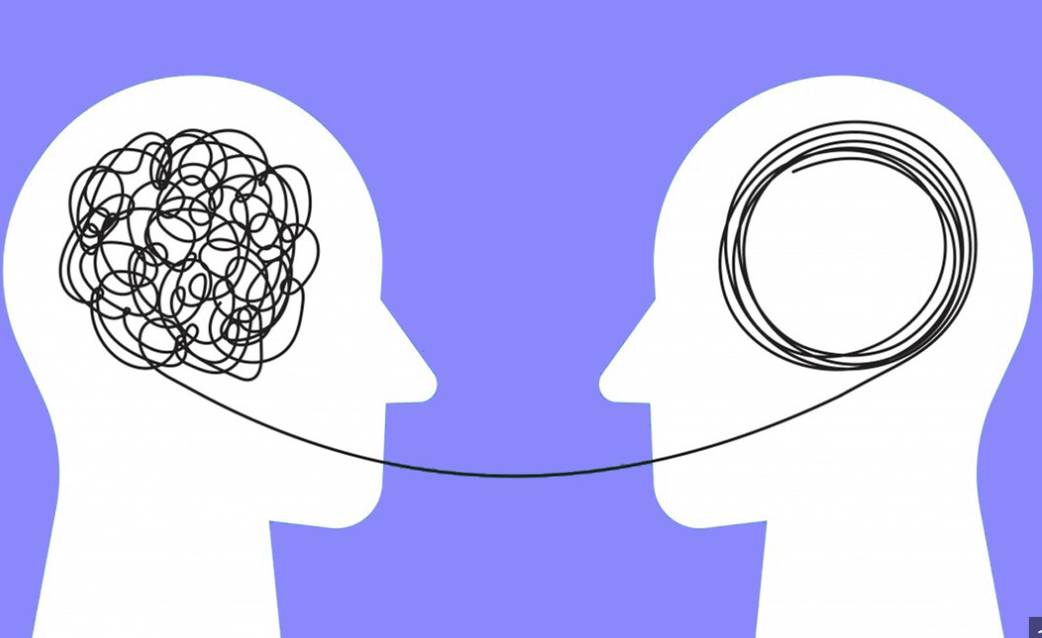As we bid farewell to 2023 and welcome the dawn of a new year, it’s only natural to reflect on the challenges that have shaped our mental health landscape over the past year. Moreover, the journey through 2023 was undoubtedly marked by a myriad of mental health issues that transcended borders and affected individuals worldwide. However, amidst the struggles, there is hope and resilience. In this blog post, we’ll delve into some specific mental health issues that dominated the global stage in 2023, and explore potential avenues for fostering a brighter, more resilient 2024!
Pandemic-Induced Stress and Anxiety: The Lingering Shadows of COVID-19
The omnipresence of the COVID-19 pandemic cast a long shadow over 2023, impacting mental health on a global scale. The constant fear of infection, the loss of loved ones, and economic uncertainties took a toll on individuals’ well-being. Scientific research unequivocally establishes a direct correlation between the pandemic and heightened levels of stress and anxiety. As we step into 2024, fostering a sense of community and emphasizing mental health support systems can be pivotal in healing the emotional scars left by the pandemic.
The Loneliness Epidemic: A Silent Battle in the Digital Age
Paradoxically, despite living in a hyper-connected world, loneliness emerged as a significant mental health issue in 2023. The digital age witnessed the coexistence of digital interconnectedness and emotional isolation. Scientific studies underscore the adverse health effects linked to prolonged loneliness, akin to the risks associated with smoking or obesity However addressing this issue in 2024 requires encouraging authentic connections and promoting face-to-face interactions to mitigate the loneliness epidemic.
Burnout in the Workplace: The Silent Struggle of the 9-to-5 Grind
Work-related stress and burnout reached alarming levels in 2023, with the boundary between professional and personal life blurring. Scientifically, chronic workplace stress has been linked to various health issues, both physical and mental. In 2024, a transformative approach involves focusing on creating healthier work environments, implementing flexible schedules, and prioritizing employee well-being to alleviate the burden of workplace burnout.
The Mental Health Stigma: Breaking the Chains of Misunderstanding
Despite growing awareness, the stigma attached to seeking mental health help persisted in 2023 Although, scientifically this stigma hinders timely intervention and exacerbates mental health issues. In the coming year, dismantling barriers necessitates fostering open conversations, normalizing mental health check-ins, and implementing mental health education programs.
The Interconnectedness of Financial Health and Mental Well-being
Financial well-being significantly impacts mental health, influencing an individual’s overall sense of security and stability. The stress and anxiety stemming from financial challenges can lead to mental health issues such as depression and insomnia. Constant worry about meeting financial obligations, including bills and debts, contributes to heightened psychological distress. Additionally, financial strain can strain relationships, adding an emotional burden. Feelings of inadequacy or low self-esteem may arise in the face of economic difficulties, exacerbating mental health challenges. Recognizing this connection emphasizes the need for holistic approaches to support individuals in achieving a balanced and sustainable financial life. Addressing financial literacy, promoting healthy coping mechanisms, and fostering a supportive environment are crucial components in nurturing both financial and mental well-being. Big Gains HQ is a great blog that you can follow to learn about personal finance, business and investing to take control of your finances and mental health.
Our Vision for 2024
As we step into the New Year, our collective vision for 2024 must embody resilience, empathy, and growth. Prioritising self-care and community well-being is paramount. Here are actionable steps to foster positive mental health in the coming year:
- Normalize Mental Health Conversations: Break the silence around mental health by fostering open conversations, creating spaces where individuals feel comfortable sharing their struggles without fear of judgment.
- Promote Connection: Actively work towards building and maintaining meaningful connections through face-to-face interactions, virtual meet-ups, or support groups.
- Invest in Self-Care: Encourage self-care practices that resonate with individuals, prioritizing activities that nourish the mind and body.
- Advocate for Mental Health Policies: Support policies that prioritize mental health at local and national levels, encouraging workplaces to implement mental health programs and ensuring access to affordable mental health care.
Potential Transformations in Addressing the Global Mental Health Crisis
- Increased Awareness and Advocacy: Efforts to raise awareness may reduce stigma and increase public understanding, fostering a more open dialogue around mental health.
- Digital Mental Health Solutions: The integration of technology in mental health care is likely to expand, with telehealth services, mental health apps, and online therapy platforms becoming more sophisticated and accessible.
- Innovative Treatment Approaches: Advances in neurobiology, psychology, and psychiatry may lead to personalized therapies based on individual genetic makeup or neural patterns.
- Global Collaboration: International collaboration among researchers, mental health professionals, and policymakers may increase to develop best practices for addressing global mental health challenges.
- Employer Initiatives: More companies may prioritize employee mental health, implementing workplace mental health programs and supportive policies.
- Community-Based Interventions: Emphasis on community-level mental health interventions may grow, focusing on building supportive environments and reducing social isolation.
- Policy Reforms: Governments may implement policy reforms to allocate more resources to mental health services, improve access to care, and integrate mental health into broader healthcare systems.
- Education and Prevention Programs: Increased emphasis on mental health education in schools and communities may contribute to prevention efforts.
- Crisis Response and Preparedness: Improved crisis response systems, both locally and globally, may be developed to address acute mental health crises.
- Research and Data Analysis: Ongoing research into the causes and risk factors of mental health disorders could lead to a better understanding of prevention strategies and early interventions.
As we embrace the promise of a new year, let us carry the lessons of 2023 forward. By addressing the emotional toll of the pandemic, tackling loneliness, workplace burnout, and dismantling mental health stigma, we can pave the way for a brighter 2024. Together, let’s foster a world where mental health is a priority, stigma is eradicated, and support is readily available. Here’s to a healthier, happier, and more compassionate 2024. Embrace the promise of a new year, let’s carry the lessons learned and the resilience gained!
If you’re interested in learning about how childhood trauma can affect your adult life, and what you can do to heal, check out my article here.









Wow !
Amazing content!
[…] and holistic approaches contribute to mental well-being and happiness. Read my article on the Surge in Global Mental Health Crises Insights from this year to understand why we need adopt happy brain strategies in our daily life, why understanding these […]
[…] as singing, dancing, drawing, or storytelling, to express themselves and connect with others. Now Surge in mental health issues made art therapy gain attention as a method to enhance health and well-being. Art therapy is not […]
[…] arguments, which shows us a fascinating web of connected processes that build our social bonds. The current rise in mental health issues is connected to a shortage of meaningful human connections, underscoring the importance of […]
[…] How our childhood experiences shape the way we handle emotions in adulthood. Picture childhood trauma as a powerful force that molds our emotional landscape, leaving lasting imprints like echoes from the past that influence our grown-up feelings. We’re not just talking about ordinary challenges; we’re addressing the substantial issues that weigh heavily on us. As we examine emotional avoidance, we uncover the roots of our emotional dance, tracing back to those early days when survival instincts came into play. The significant part is this—by understanding the connection between childhood trauma and our emotional responses, we’re not just gaining insight; we’re reclaiming control. This journey involves discovering effective ways to navigate emotions, planting seeds of resilience and emotional well-being. It’s time to rewrite the story of our emotions.Neglected childhood traumas are contributing to a surge in mental health issues. […]
[…] better when you’re feeling down, it’s important to do things that make you feel good. Many times, when people feel depressed, they stop doing things they used to enjoy. They might sleep too much, not exercise, or avoid […]
[…] ourselves better—our thoughts, emotions, and actions. It’s crucial in today’s fast-paced world, guiding us to make better decisions, nurture relationships, and navigate challenges effectively. […]